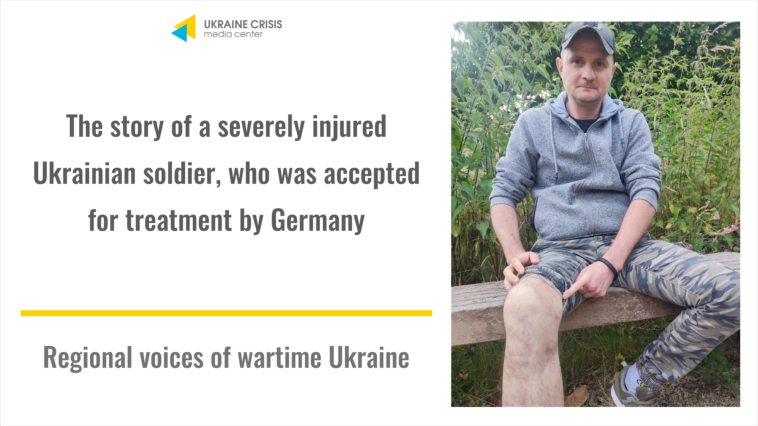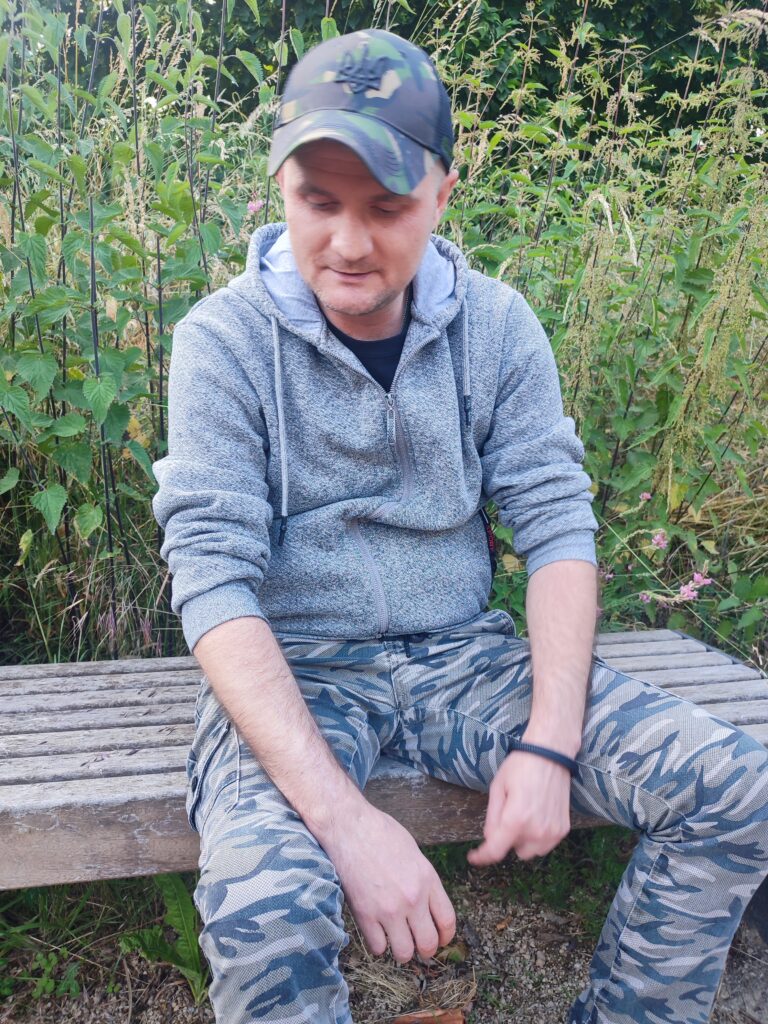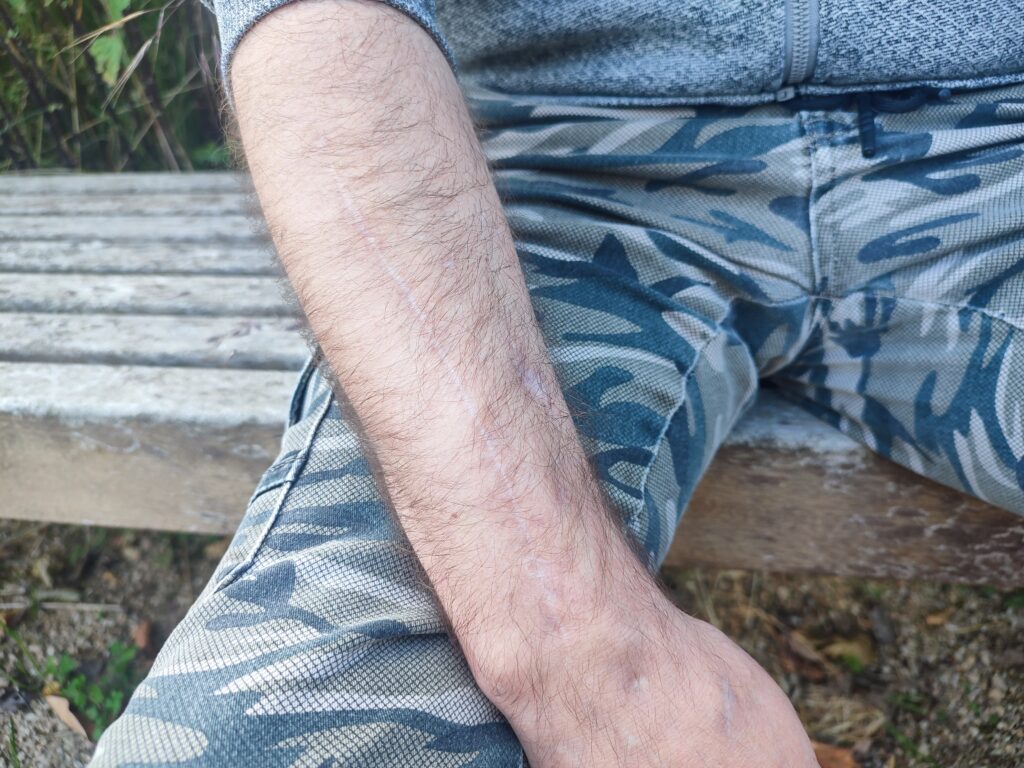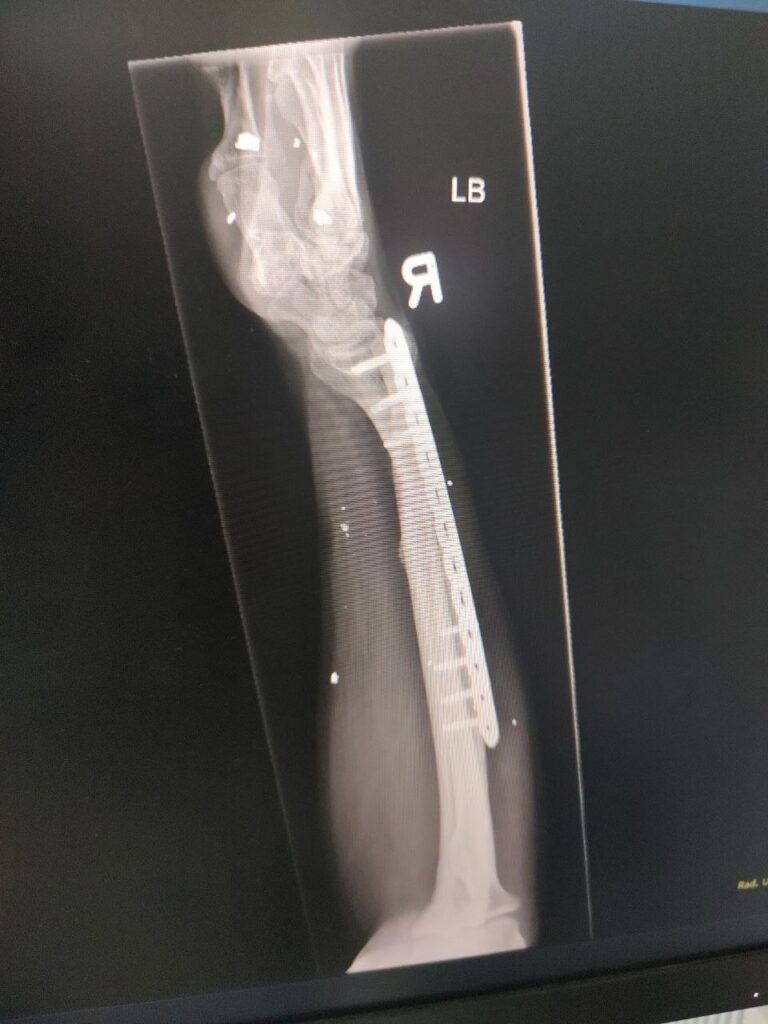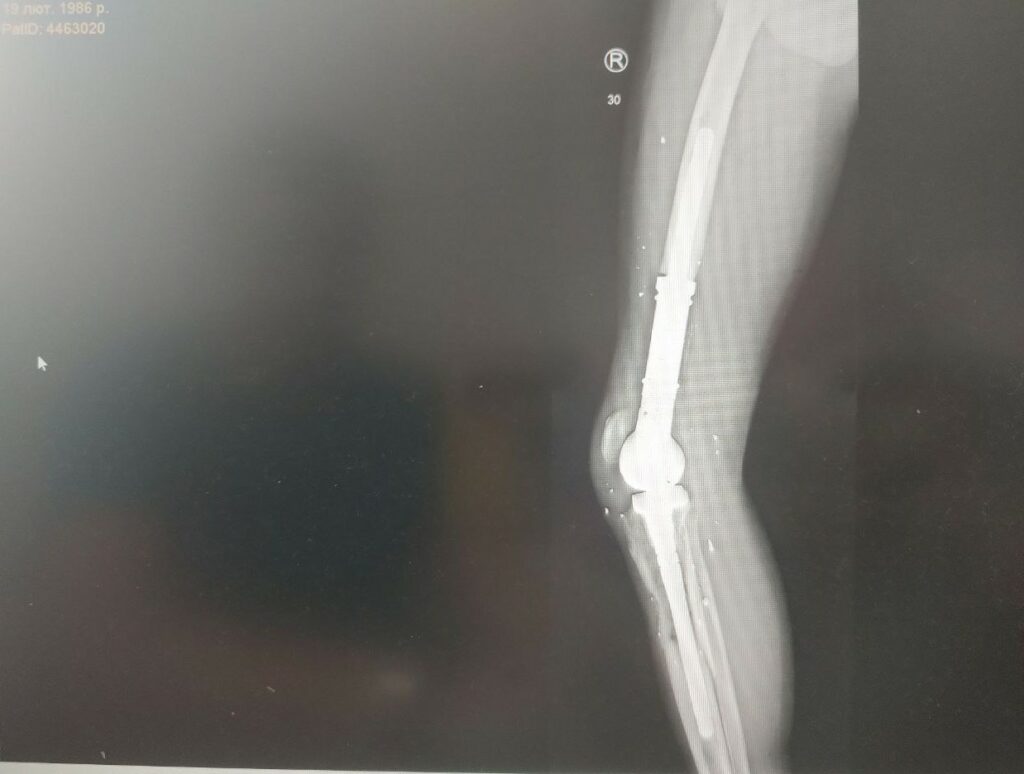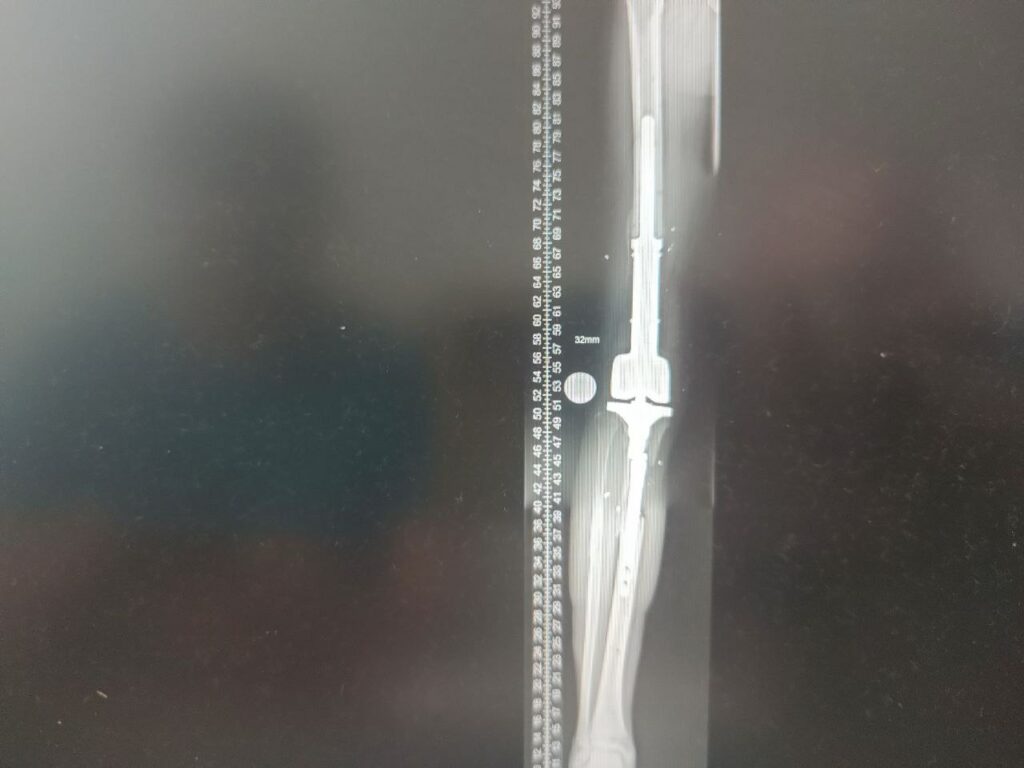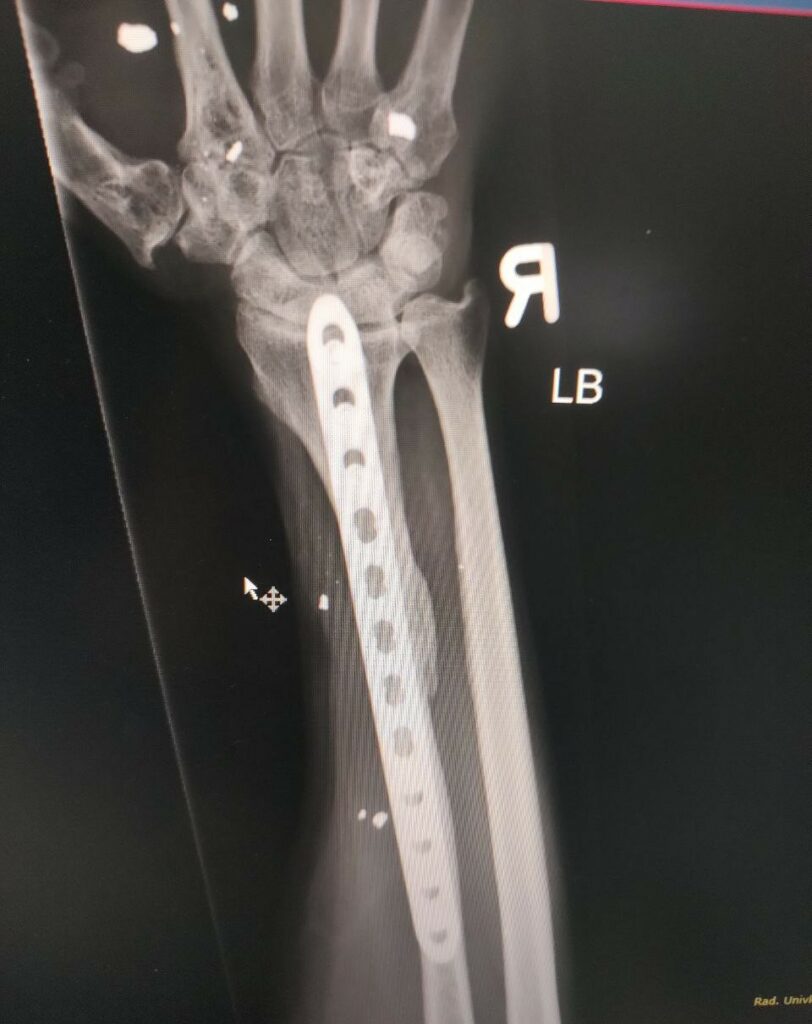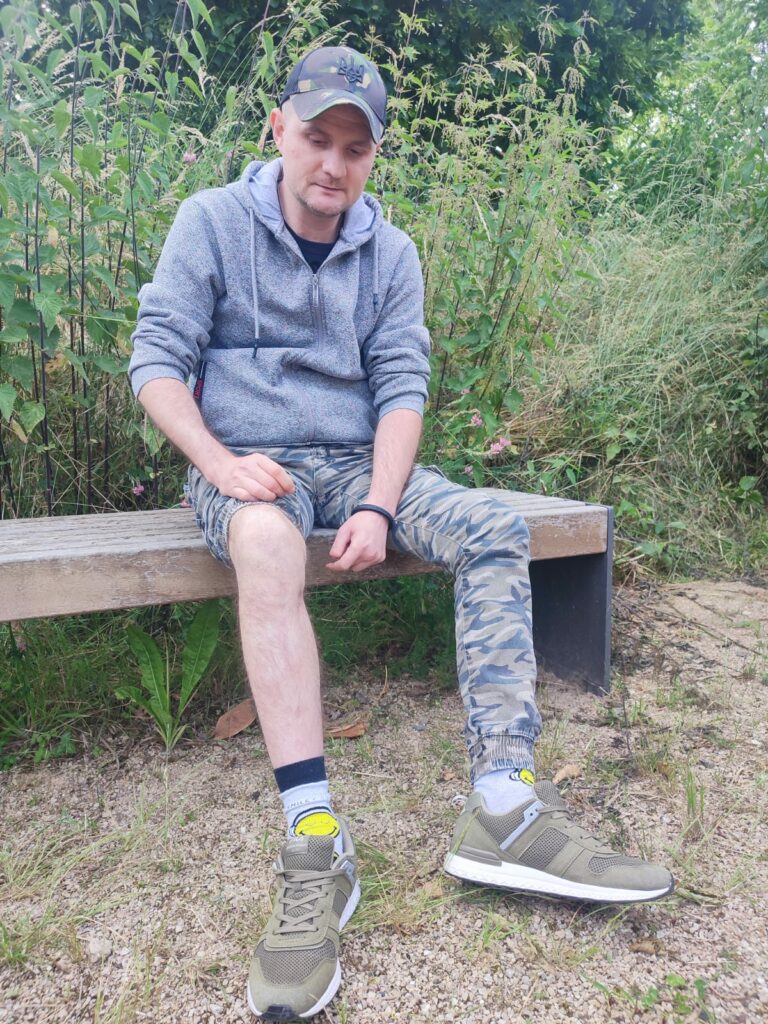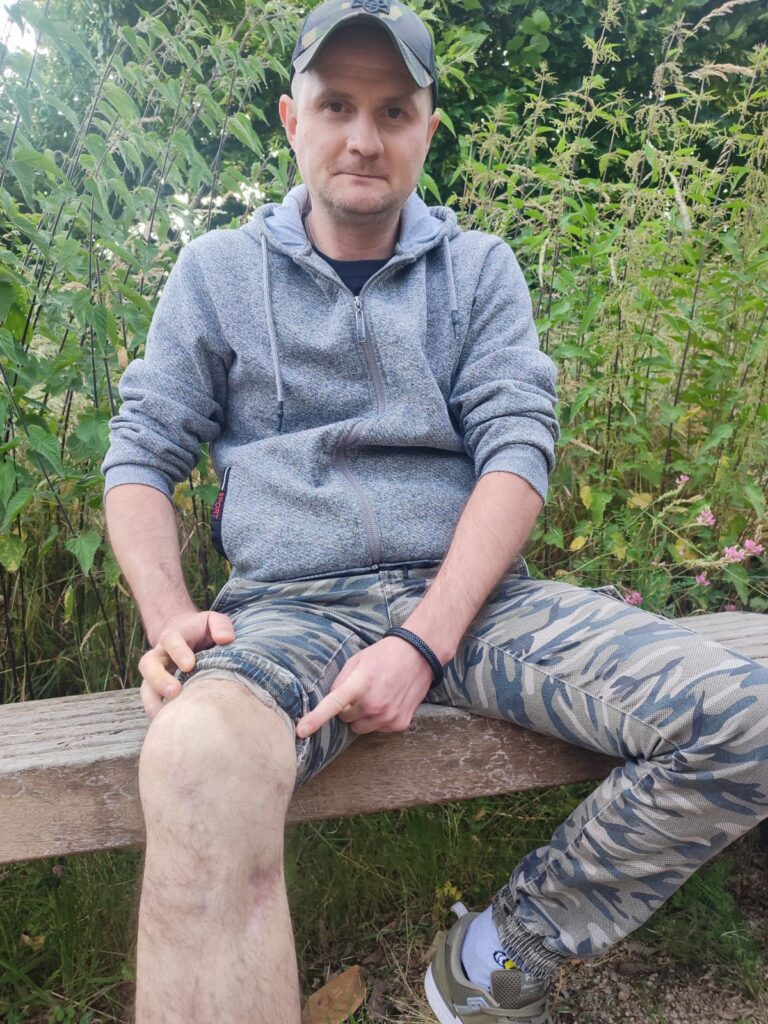Warning! The article contains photos of a sensitive nature showing severe injuries.
There are more and more men and women with artificial limbs on the streets of Ukrainian cities. They are veterans of the Russian-Ukrainian war who have lost an arm or a leg in the war, but haven’t lost their will to live and fight. Prosthetics may not restore their former health, but it makes life much easier. Even before Russia’s full-scale invasion, Ukraine couldn’t provide all its injured soldiers with high-quality prostheses, and now it is even more so. The number and complexity of injuries are unprecedented. In this situation, the help of Ukrainian and international philanthropists, such as the Superhumans Center, as well as prosthetics and rehabilitation abroad, is perhaps the only hope that veterans have.
A good example is Germany, which accepted Ukrainian soldiers with severe injuries for treatment. A large number of soldiers had their prostheses successfully fitted and their limbs saved.
“If you’d asked me in 2022 how it would end, I would say – absolute victory. Now I don’t know. Now I don’t know…” says Roman Mykulskyi, 38, a badly injured fighter of the 30th Separate Mechanized Brigade.
We meet in Bonn, Germany, where the soldier underwent knee replacement, treatment and rehabilitation. Both of us were invited to visit by Ukrainian migrants and refugees who now live in Germany. I came to the Global Media Forum for two days from the frontline Kharkiv, so the unusual silence and non-involvement in round-the-clock resistance make me somewhat nervous. Roman is also nervous about this silence. Unlike local migrants, he’s very eager to go back home. Many of the “locals” who fled the war don’t understand my willingness to return to the dangerous Kharkiv.
We are both upset that people abroad don’t understand reality, and hence have a completely groundless belief that we can give some part of the territories to the Russians so that the dragon will calm down. Mykulskyi is convinced that the Russians won’t stop, even if Ukraine renounces the eastern regions and Crimea: “I would spit in the face of those who propose to renounce. They won’t stop at the Kharkiv region. And to give up… I don’t understand such people: it’s not my problem, I don’t care.”
Fighting in the Bakhmut sector and the injury
Roman Mykulskyi. ATO veteran. A combat veteran. After the ATO, he worked in the police for some time. Without hesitation, on the first day of the invasion, a man mobilized in Kyiv to the Kostiantyn Ostrozkyi 30th Separate Mechanized Brigade. The soldier recalls that on the first day they took everyone without exception, the military-medical qualification commission was a formality, but on the second day of the full-scale war, the recruitment almost stopped. Roman assumes that by February 24, 2022, the existing military units had been manned up and simply couldn’t physically accept all those willing. Alas, the situation is diametrically opposite now.
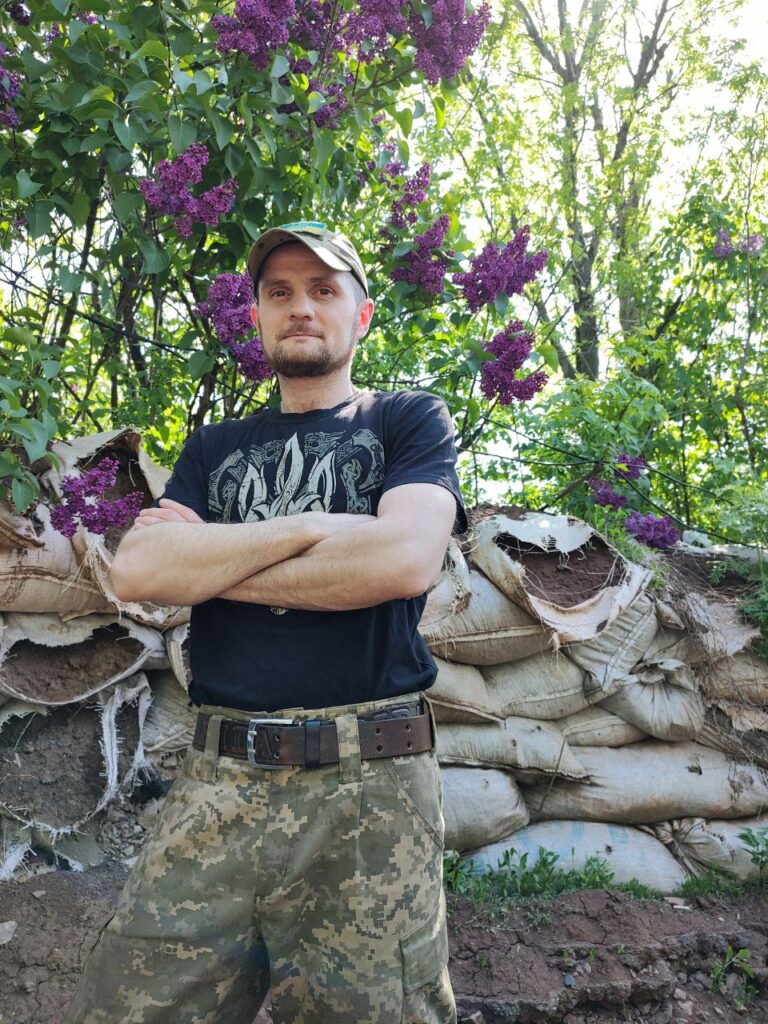
With the brigade, he went through the first months of the Russian invasion: the Horlivka sector, the Chornobyl exclusion zone, where they expected a second invasion, battles in the Kharkiv region, Bakhmut and the Bakhmut sector, where the soldier had his first serious concussion. After a short treatment, on October 25, 2022, he was already “at zero” in the Bakhmut sector again. “I went with the thought – to the victory!” says Roman.
On November 2, 2022, Mykulsky was seriously wounded near Kurdyumivka, the Donetsk region. At 2:00, the soldier took up his position, and at 2:10, on the fourth attempt, the enemy hit his trench with a mortar.
“I still don’t know how I survived. When a mine flies, you can hear it. But they say you definitely can’t hear your own mine. I kept looking out, looking at the thermal imager. It all happened in 10 minutes, at 2:10 the fourth mine flew straight into the trench. I was blinded and deafened. I squatted down, it cut through my leg in two places, and my arm was pierced. Gunpowder gases burned my eye, and my ear bled,” the fighter recalls the Russian assault.
Despite being seriously wounded, Mykulskyi wasn’t going to surrender. “After being wounded, I immediately grabbed a grenade. I can’t take a grenade: this hand is broken, that one is cut. I think if they try to get in, I’ll blow myself up or blow them up. I never even considered captivity,” the soldier says very calmly.
Roman was saved by his fortuitous decision the day before to inspect the belongings of his comrades, who had been evacuated from the position after being wounded. Among other things, the soldier found a stretcher. “We found a stretcher, as if I had felt something. And it was on this stretcher that I was taken out later,” the man laughs and is happy about his luck. Mykulskyi was carried from the battlefield with broken arms and legs by his comrades
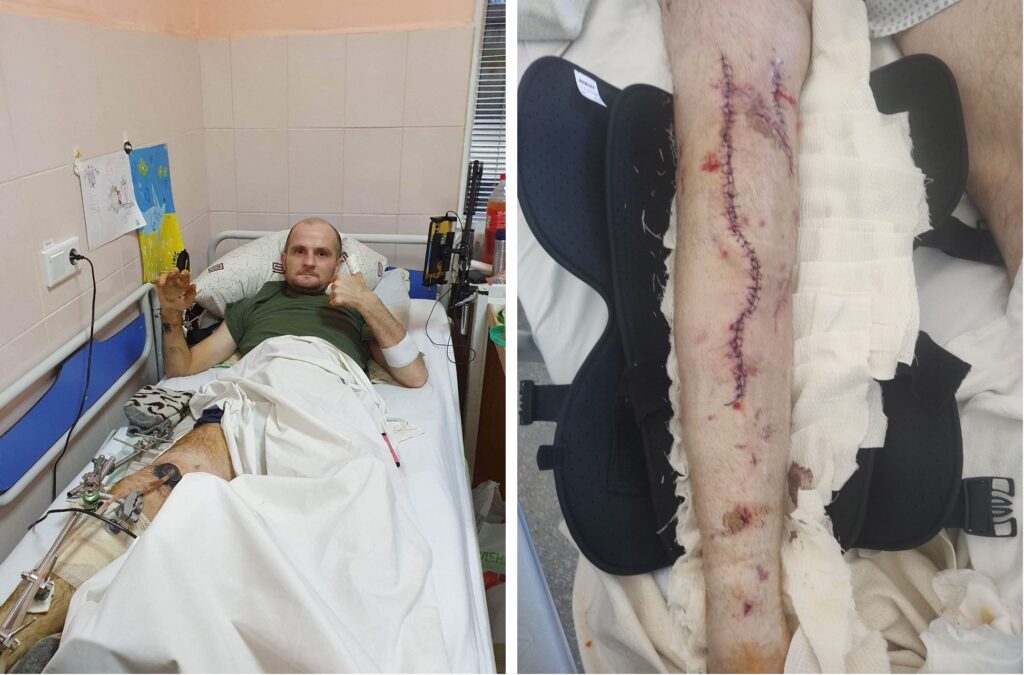
Treatment and prosthetics in Germany
The soldier was evacuated first to Druzhkivka, then to Novomoskovsk, Lviv and Mukacheve. In Ukraine, the man underwent 6 operations and had an Ilizarov apparatus fitted. Later, with the help of the Ministry of Health of Ukraine and volunteers, the soldier was taken to Germany for treatment. Since November 2, 2022, he has been undergoing a difficult course of treatment, which was complicated when a specific “bone-destroying” bacterium got into the wound.
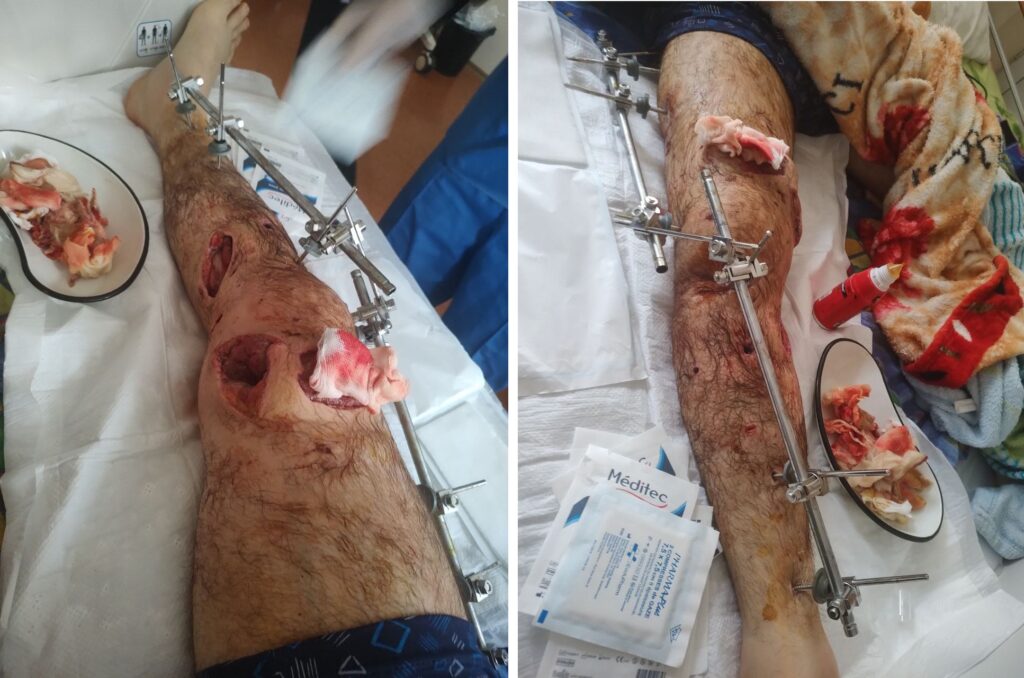
“Honestly, I don’t know who pays for the treatment. Not me. Here, due to this bacterium, I had temporary plates with an antibiotic inserted into my leg to kill this bacterium. And for the third time, I had a permanent structure fitted. There was an option either to have a straight pin so that the leg doesn’t bend, or to let it bend, but there is a 40% chance of rejection. I chose the second option,” he says, and seems to demonstrate the correctness of his choice by bending and straightening his knee.
The surgery was performed in the spring of 2023 in Germany. Now he is undergoing rehabilitation and physiotherapy.
“All soldiers who were wounded in the trenches have the bacterium. This bacterium is very difficult to remove; there are one or two antibiotics in Germany that are more or less effective. But overall, the bacterium has eaten up to 10 cm of my bone. It destroys the bone “I have an artificial iron knee,” says the soldier. “My goal was to clench my fist, I clench my fist, not by myself, I need help but I can.” The muscles in my legs remained, so I can walk normally for short distances. And if I go to town, I have a cane. But I can’t take the load on myself.”
Mykulskyi admits that it was the German doctors who saved his leg – the capabilities of Ukrainian medicine, especially during the war, are limited: “If I’d stayed in Ukraine, I think it’s 99 percent that I would have had my leg amputated.”
Unsurprisingly, a woman helped the soldier endure difficult surgeries. He calls her his “future wife”. The couple has already chosen a wedding month, August 2024, and even got engaged. “But for my future wife, I don’t know what would have happened. Her support was very strong. She went to all the hospitals with me. Although we’ve known each other for a long time, we became closer during the war. We met at the institute,” he says.
Plans for the future
In the coming months, despite the results of the arm treatment, Roman Mykulskyi plans to return to Ukraine. Here he has an ex-wife with an 8-year-old daughter, a future wife and parents. The man is not enthusiastic about the fact that that he’ll have to undergo a second surgery and knee replacement in 10 years. And he’ll have to earn money for it himself. This is a huge problem that will be faced by war-weary Ukraine and its wounded defenders, many of whom won’t be able to return to their pre-war occupations. With a disability, many of these people won’t have financial resources for elective surgery. If we don’t start thinking about it now, then thousands of our veterans may lose their limbs, conditionally, in a few years. Moreover, Ukraine faces a huge challenge not only in terms of medicine. How to retrain and reintegrate so many people into the economy? In addition, when recovering the country, special attention should be paid to infrastructure for people with disabilities.
“Now I want to learn English, perfectly. I want to study IT and work. I’m coming back to Ukraine soon. In a month, I’ll have my arm X-rayed, and if everything is okay, I’ll undergo a surgery, have the plate removed, and then I’ll recover a little and go. If they say I have to wait another 3 months, I’ll go to Ukraine right away, without waiting. Well, I can’t wait any longer. All my family, everything is there,” says the man.
Roman Mykulskyi, who is still a decommissioned serviceman, probably won’t be able to fight anymore, but he doesn’t think it’s a good idea to freeze the war with Russia. “I see no point in ending the conflict by freezing it or negotiating. Because it’ll be the same. Nothing will change, in 5 years it’ll be the same,” the fighter warns.
Author: Yuriy Larin
All photos are provided by the author and Roman Mykulskyi
Supported by the U.S. Embassy in Ukraine. The views of the authors do not necessarily reflect the official position of the U.S. Government.

